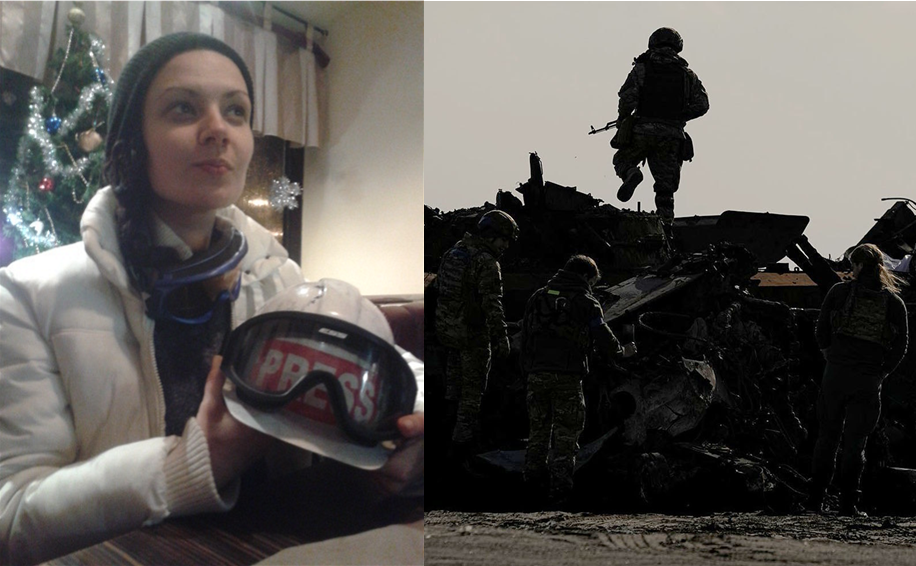On February 24, 2022, a full-scale Russian military attack changed the destinies of millions of people. Journalists overnight became, in addition to their specialization, war correspondents and war victims, mostly unprepared for reporting amidst bombs.
Some journalists became soldiers, some became reporters in the army, and others continued their work even under mass bombardment. A lot were forced to escape with their families and become refugees and internationally displaced people (IDPs).
According to the Institute of Mass Information (IMI), journalists also took a blow to their financial situations. More than 200 publications closed, and many journalists were left without work or tools to report with. But even though 74% of survey respondents said that their finances worsened, reporters have continued working for free, many still in publications close to front lines, and in various regions and cities.
Journalists, clearly marked as “PRESS,” are working amidst deliberate shootings by the Russian army. IMI reports that since Russia’s invasion, 43 journalists have been killed, eight of them while performing professional duties.
Among other Russian crimes on Ukrainian territory are murders, kidnappings, cybercrimes, attacks on TV towers, shutting down Ukrainian broadcasting, threats, attacks on media editorial offices, as well as branding and creating fake clones of local publications and channels to spread aggressive propaganda.
In opposition to these offenses, journalists in Ukraine are taking a strong civil stance to support advocacy and volunteering while cooperating with NGOs, the army, and the government. They do all this while trying to still objectively present the situation from the ground.
Journalists became more active in documenting war crimes and aiding advocacy projects. NGOs and the media sphere are giving extensive support to initiatives aiming to hasten the end of the war and hold Russia accountable.
One such instance was the court case of Ukrainian businessman Rinat Akhmetov, who sued Russia for destroying his crucial infrastructure. The suit’s main aim was to hold Russia liable and make it pay for all damages done.
Now Ukrainian journalists are being trained through various educational seminars on first aid, too, working through dangerous situations to cover and respond to the war.
Natalie Gryvnyak is an experienced journalist and media producer in Ukraine, contributing to top international media such as The Wall Street Journal, The Washington Post and others. As the founder of InFeatures Story Production, which creates multimedia content and promotes Ukrainian and Eastern European topics to international audiences, she creates and produces numerous projects, media trainings, and documentaries. Gryvnyak is also a consultant and a member of the international community of digital specialists, Digital Communication Network and the community for journalist protection (CPJ).
Header image left: photograph of author, Natalie Gryvnyak. Right: “Russia Ukraine War – Day 43: Gathering the dead, clutching to life” by AP Photo/Vadim Ghirda, uploaded by manhhai on Flickr.

